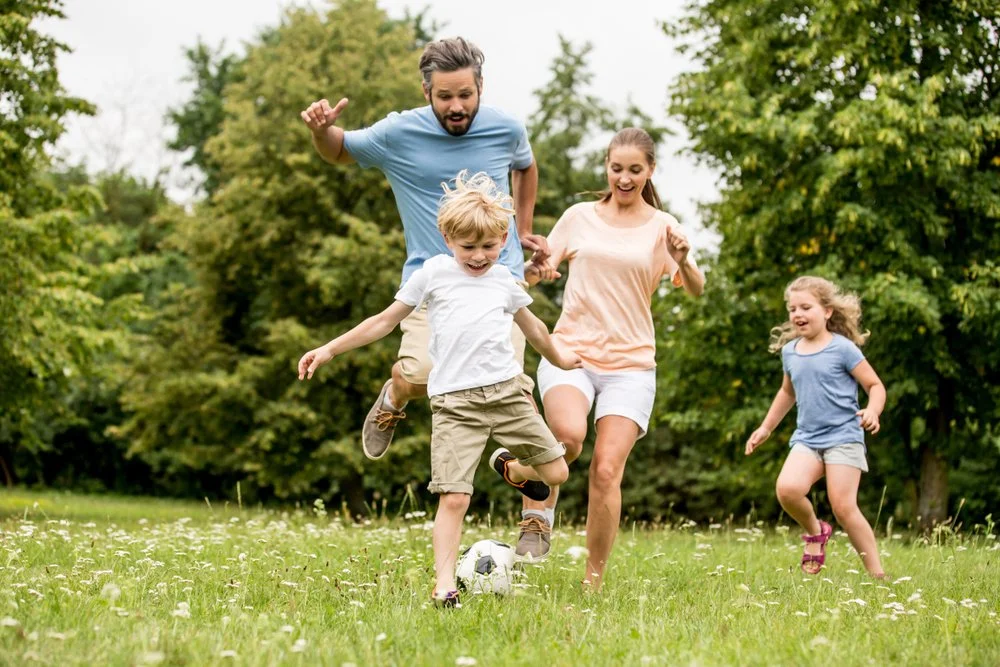Five ways to wellbeing
The five ways to wellbeing have been designed to encourage us to take simple actions every day that build on our strengths, increase our confidence, and help us to improve our health and wellbeing.
Connect with others
Good relationships are important for our health and wellbeing, they can help us build a sense of belonging, give us an opportunity to share experiences and to provide or receive emotional support
Try to find time each day to spend together as a family, for example, eat a meal together
Make the effort to stay in touch with friends either by meeting up or calling them
Take time to talk to others in your family without the interruption of TV
Thinks of ways to make new friends
Be physically active
Being active can improve our physical health and mental wellbeing; it can help us feel better about ourselves and release chemicals in our brain that change our mood
Think about individual and family goals you can set to be more active - try to find something you enjoy doing – being active doesn’t have to be playing a sport or going to the gym; taking the dog for a walk, playing in the garden etc all count
Learn a new skill
Learning something new can boost our self-esteem and confidence, giving us a sense of purpose and possibly helping us connect with other people
Try cooking some new recipes
Is there a new hobby you could take up yourself or as a family?
Give to others
Acts of giving and kindness can improve our mental wellbeing by giving us a feeling of worth and a sense of reward; it could be a small act of kindness for a neighbour or family member - it doesn’t have to be anything large
Always try to say ‘thank you’ when someone does something for you
Listen to concerns people in your life may have
Spend time with those who might need support
Volunteer in the community
Take notice
Paying more attention to our thoughts and feelings, our bodies, and the world around us can improve our health and wellbeing - this is sometimes known as ‘mindfulness’
Take the time to sit still and think about what is around you – use all your senses – touch, sight, sound, smell, taste
Try mindful eating – focus only on what you are eating, avoid distractions, switch the TV off - often, we eat without thinking about it, or through habit rather than hunger
Take time to notice what you are thinking and how this makes you feel


